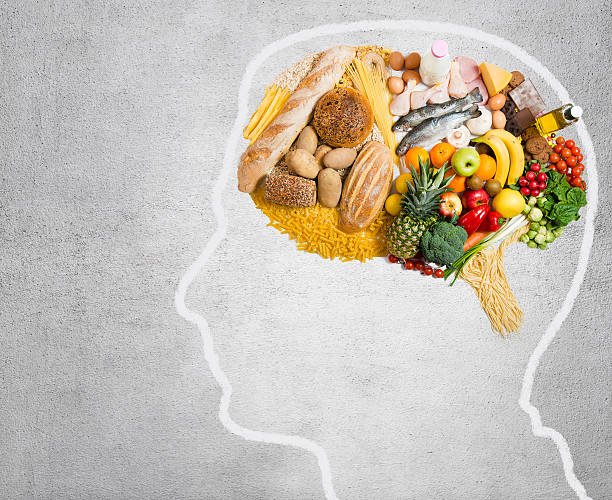We have often heard the saying, “You are what you eat”, this has now been proven to be true through detailed studies. This statement holds true not only for our holistic health but specifically in relation to our mental health. The relationship that our food intake shares with our mood is a very strong one to the extent that our gut is also referred to as the ‘second brain’.
Food intake of any kind triggers our gut to produce numerous hormones and neurotransmitters to our brain which in turn affect our mood. Thus, saying that our diet and mental health are interrelated is not wrong. An erratic diet with a range of unhealthy foods causes frequent mood swings and inflammation in the body with an awry hormonal regulation. However, eating a balanced diet with a wide variety of healthy foods allows our gut to function optimally which in-turn leads to clear messages being sent to our brain and the reflection of these through our feelings and emotions. A healthy gut is thus a major contributor to good mental health.
A healthy diet is just as important for mental health as it is for physical health. As the saying goes, “a healthy mind lives in a healthy body.” As mentioned above, gut health is important to our bodies in more ways than just protecting the digestive tract. Serotonin, which influences mood and sleep, is primarily synthesized in the gut. Food acts as fuel for our brain, which makes it very important to focus on providing it with the right kind of fuel and avoiding things that can be detrimental to its well-being. Deep-fried, processed, sugary foods are not considered healthy as they cause cognitive decline as well as disruptions in cellular pathways. Several studies have shown that these imbalances in the brain can lead to mood disorders. On the other hand, maintaining a balanced diet, comprising of a healthy amount of sugar, protein, fat, fiber, and carbohydrates provides the brain with the right kind of fuel that leads to the strengthening of these neural pathways, betterment of cognitive function and reduces susceptibility to risk factors that can cause disorders such as depression and anxiety. For instance, vegetables and fruits are high in fiber, antioxidants, vitamins A,C which help reduce levels of stress and combat stress-related disorders. Protein, in the form of fish, chicken, whole-fat yogurt, and high-protein nuts and seeds, helps produce natural chemicals that have been linked to an improvement in mood.
The brain is more focused on your general health and well-being. As a result, it monitors various gut signs and combines them with a number of signals from other body components as well as information about your environment. It keeps an eye on what the enteric nervous system is doing, but it also pays great attention to how you feel in your gut, how your gut reflects your emotions, how your stomach and colon contract violently when you’re angry, and how there is no intestinal activity when you’re depressed. Giving individuals with depression direction, support, and knowledge, whether in a one-on-one or group situation, can help them enhance the quality of their diet. With the right support, we can make changes to our diet and our mental health issues and bring in the right balance.
A lot of the judgments we make in life are logically sound and the result of thorough deliberation. On the other hand, there are decisions you make that you don’t really think through or give much thought to. Like when you choose what to eat, what to wear, or what movie to watch, such decisions are frequently made automatically. Once we have a better understanding of the principles underlying intuitive decision-making and recognize it as a worthwhile goal to pursue, there are several techniques we may follow to enhance our capacity to bring balance to our lives. “The more I am aware, the more I am taking care of myself”.
Importance of Professional Counseling: A friend or family member may listen to you, but they aren’t professionally, technically qualified or experienced to offer you professional advice. If you wish you can contact us at MindTribe to receive help from our team of expert psychologists.
About MindTribe.in.
MindTribe Founder Dr. Prerna Kohli, India’s eminent psychologist, established the company to leverage the strength of the online to make counseling affordable and accessible to everyone. MindTribe provides counseling, workshops, support groups, forums, and eLearning.
About the Author.
Dr. Prerna Kohli, is an eminent psychologist, a published author, a four-time gold medalist, an awardee by the President of India for her contributions to Mental Health, and the founder of MindTribe.in. You can learn more about her by clicking here www.drprernakohli.in
Disclaimer: The views and opinions expressed in this article are those of the author and do not necessarily reflect the official policy or position of MindTribe.in, the Founders, or management team.
Acknowledgement: All images used are open source and from Unsplash.

